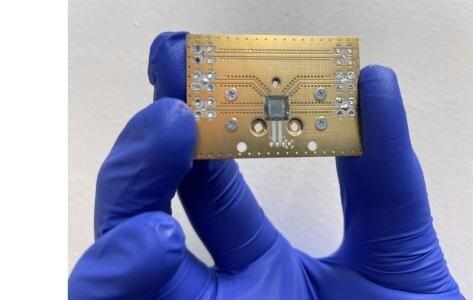Quantum science holds promise for many technological applications, such as building hackerproof communication networks or quantum computers that could accelerate new drug discovery. These applications require a quantum version of a computer bit, known as a qubit, that stores quantum information.
But researchers are still grappling with how to easily read the information held in these qubits and struggle with the short memory time, or coherence, of qubits, which is usually limited to microseconds or milliseconds.
A team of researchers at the U.S. Department of Energy’s (DOE) Argonne National Laboratory and the University of Chicago has achieved two major breakthroughs to overcome these common challenges for quantum systems. They were able to read out their qubit on demand and then keep the quantum state intact for over five seconds—a new record for this class of devices. Additionally, the researchers’ qubits are made from an easy-to-use material called silicon carbide, which is widely found in lightbulbs, electric vehicles and high-voltage electronics.
